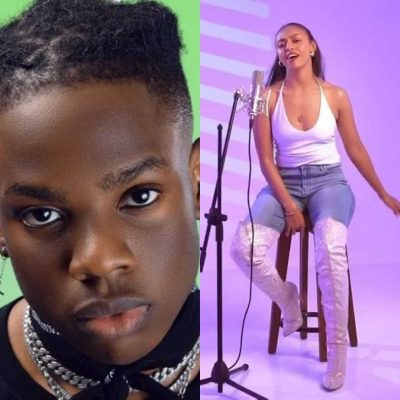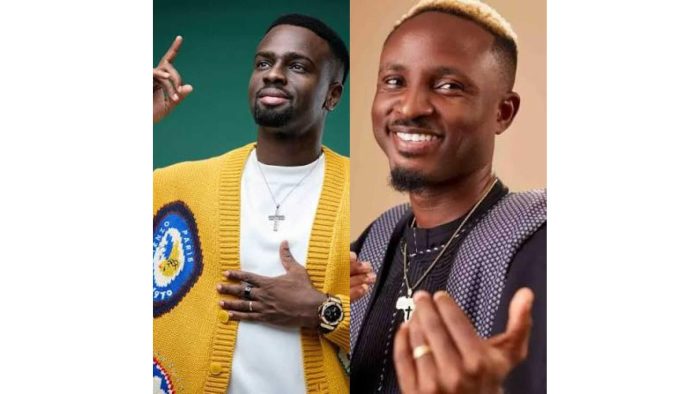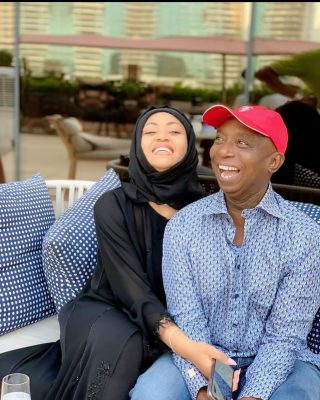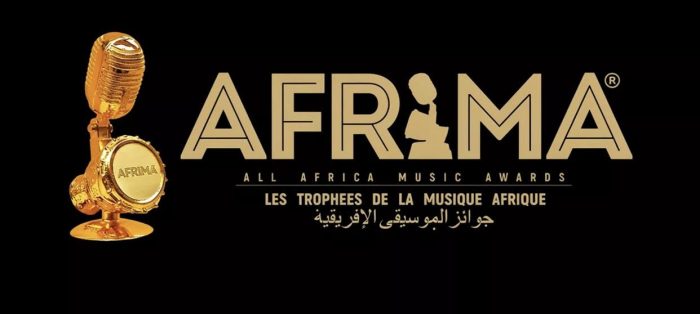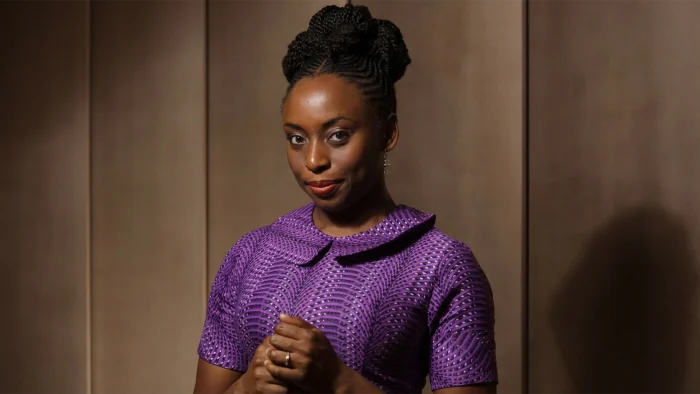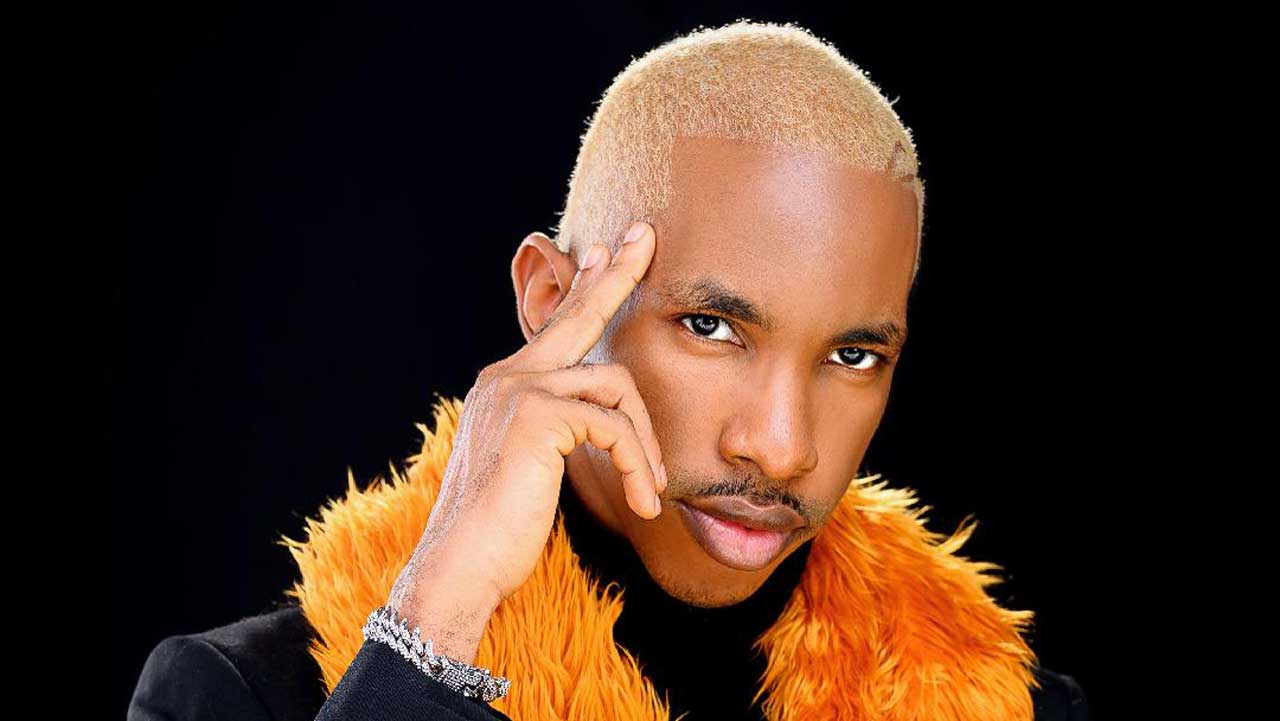
The consequences of being one of the most impeccable disc jockeys in the Nigerian music industry are many, and if they were to be personified as a human, they would look exactly like Pelumi Akeredolu.
[ad]
Professionally known as DJ Consequence, the 31-year-old turntable legend has been one of the engines of the Nigerian music industry, in recent years. After spending over a decade deepening his craft, the popular DJ turned towards sustainability and birthed a training outfit dubbed, The Vibes Academy, which has become a haven for every aspiring DJ within the country.
Apart from being a visionaire, one other thing stands out with this party machine; his undisputable exceptional A&R ing skills. Typically, as a disc jockey, your musical career spans across spinning turntables and matchmaking musicians to create chart-topping melodies. It takes more than just an ear for great sound to achieve the same results that DJ Consequence has; it takes resilience, radicalism and grit. These have been the recipe for his exceptional discography, such as his pandemic-era soundtrack, Vibes From The Future, and his litany of pop megahits.
What does it take to make it out of the cutthroat Nigerian music industry, as a disc jockey? How relevant are DJs, currently, to the growth of the music scene in Nigeria? How lucrative is the business itself? DJ Consequence sheds light on these issues, as he shares his own backstories with Guardian Music, reminiscing on his struggles, his wins, and the many other consequences of the bare-minded coincidence that made him a DJ.
How did you delve into being a Disc Jockey?
FIRST time I actually ever touched a turntable was I think 2007, yeah. I have been doing music way back from childhood. So, I used to play musical instruments – drums, guitars and all sorts. I was a music prefect in school- secondary school then. We had this committee where we usually plan like all the prefects and top students plan the social day for our final year. So, I was part of the committee to plan the social day for our final year.
[ad]
We were tasked to go and get a DJ that would come and DJ for us back then. There was this top, popular DJ back then; he was called DJ KQ. We went to visit his studio back then with a couple of other of my schoolmates. So, when we got there, we saw some of his boys that work with him, and I picked interest. I liked what they were doing and- the only thing on my mind was “wow.”
I now asked them, ‘can I even learn how to do this for a few days just to showcase a bit of skills at the social day.’ They said it was possible. At that period, I used to listen to DJs on radio back then and I know most DJs; I just enjoy them playing. I didn’t have the flair that I wanted to be a DJ or anything. When I saw those guys doing it physically, I was like ‘wow, I’ll put them through a lot, let me just learn this.’ I just wanted to learn it to showcase myself for the social day, nothing more, you get. It was not like I wanted to do it as a profession or anything.
So, I went back the next day, got a couple of things- basic things, got an idea of what they do. On the social day, I just did one or two, and people were like hailing me, ‘oh nice nice nice.’ After that, I was like this is something I think I can really, really pick interest in and continue doing, but the environment where the studio was… it was in Oshodi.
Back then, I lived in Oshodi and my school was in Oshodi Command. It was not really conducive for me, you get. So, I just, I will not say abandoned, but I just left it. I just lost a bit of interest, because of the area it was. A lot of guys would hang out around there; it was not safe for me. So, after like a month or two, my classmate called Timothy encouraged me to keep on learning. He introduced me to another DJ in his area. The guy charged us N3,000 naira to learn that time. In my eyes then, it was like N100,000. Funny enough, my colleague was faster than me in learning.
After the first month, second month, we learnt the basics from Pio and he really taught us what we needed to know. We couldn’t afford the fees anymore; we had to just stop going then, because it was my allowance I was gathering back then to pay those funds. And that was the period that the Internet was really evolving in the country, around 2007 and 2008. Everybody was now used to the Internet. Anything you want to do is on the Internet; there’s Facebook, you go on websites, you know. Practically everything I learnt in DJ, 90 per cent, apart from the basic things I was taught, I learnt them online. That’s how my whole DJ, like the foundation of my DJ started; then my online tutorials, YouTube videos and all, plus the basics I learnt from Pio. That was how I was able to just coach myself as a DJ to where I got to right now.
[ad]
From struggling to learn, to having your own DJ Academy, how was the whole process?
I can tell you, everyday, I have nothing less than six DMs everyday on my Instagram, I kid you not. Everyday on my Instagram, people send me messages that they want me to teach them how to DJ. So, I taught like two or three guys back then. I groomed them and they became good DJs too right now. I thought about it, I can’t accommodate everybody at my house, I can’t teach everybody at once from different locations and I was like why don’t I just open a DJ academy. It has been on my mind for a while, so I had to take my time.
You know you just don’t wake up one day and say you want to open an academy; you need to take your time. You need funds; a lot of things come with it. I had to take my time, study the environment, and know the environment I want to take. I even checked other academies in other countries and saw how they run it.
Is there any sense of fulfillment?
Yes, I’m telling you, 100 per cent. We are in our third session now; we did two sessions last year, and we are in our third session now. We do two sessions per year, we are in our first session for this year and next session will be in September and trust me, it’s fulfilling.
How lucrative would you say being a disc jockey is currently?
Yeah, I get you. In every business basically, it’s the same hustle. When you want to be a doctor, when you want to be a lawyer, there’s always the struggle process. There are always obstacles, definitely, in everything we do; even a teacher, even a banker, you know how it is.
What is helping younger DJs now is that someone like me, I’ve learnt from the mistakes my other senior colleagues have made, you get. We are now passing it to the younger generations that are coming. That’s why we have this academy, and I’m not the only one that has an academy; there are like four or five academies. We are impacting these newer sets of DJs. I didn’t have somebody to guide me, so now we are guiding people.
[ad]
Trust me, the Internet is another breakthrough for people. There was no Internet back then, other DJs didn’t have this opportunity back then. A DJ can just go up on YouTube and do freestyle and boom, you are out there; your craft is out there. But In terms of being lucrative here, you know there was a time when DJs were not seen as anything, but right now, the whole game has changed, because they respect us.
I am an ambassador for Budweiser; for DJs, you get DJ ambassador. So, the recognition is there. I won’t say it is 100 per cent there, but at least like 80 per cent. It can be a hundred, but like 80 per cent of the recognition is there; the respect is there. You find out that yes, you need a DJ for every party. DJs are needed everywhere; they are respected now unlike before that the respect wasn’t there.
Right now, the respect is there. Even if it is not lucrative now, at least they will charge what we know that yes, we should earn. Not everyone can charge that, but they should know that yes, we are earning what we are supposed to be earning. As at three years ago, all our DJ mixes that we put out online, people download them for it and we aren’t earning jack from it. But right now, all my mixes I put online, Apple Music pays me for my mix tapes. So, the game is changing, it is evolving day by day.
So, what’s the thought process behind selecting who you collaborate with on a project?
A DJ will always be a DJ, that’s what people need to understand. On my laptop, I have over 20,000 songs, and out of these 20,000, I know all my hit songs; we play them regularly. So, I will say most of the DJs always have that ear; they have that flair. They know the content that will do well; even when they want to check the album, they ask the DJ to come and listen to their songs to pick. It’s the DJ that plays the song; it is the DJ that knows the reaction of people when you play such songs.
So, automatically, when the DJ wants to do a song or wants to drop any material, he will know what will attract the audience. We have that advantage of we knowing what is going to move the audience. If you play me three songs and say this is this, automatically, I will tell you this will fly, this will not fly. You as the artiste may just feel, ‘yes it is my talent, I want to do this, let me see how it sounds,’ but we know this is going to fly, and this is not going to fly.
[ad]
So, that’s what helps DJs, particularly when it comes to dropping their own tracks, because the DJ will want to drop a hit tract that will move the audience not something that will not move the audience.
Tell us some of your most memorable songs?
I would say my first track with Dammy Krane and Ice Prince; making a song in that period was really crazy. Dammy Krane just called me up, and I was living in Quilox back then, which was quite popular. He was always coming to the club and he was like, ‘okay, I have an idea.’ So, we did a song for all the promoters, all the song promoters back then. It was really fun to make, but it was also challenging, because back then, the funds were not enough; we had to share the cost of everything; money to mix the song, money to master the song, production wise, reaching out to the public, promoting it. We just had to just struggle with it. It was a popular club anthem back then and that was my first song.
Then, I would say my new release with Patoranking. It’s very funny, because we’ve had that song for over a year; we’ve shot the video for over a year. Even the video was shot as of April 2021. Everything was set, but we were now in COVID-19. We were like, ‘what do we do?’ When we were about to drop it again, I now recorded the song with Yaba Buluku Boys; I now had to pause. I had to tell him, ‘let’s drop this one first, since these guys are trending right now.’ The one with Patoranking is something I can drop anytime; it’s not a song that is fixed by a particular period. It goes with any period, so, I was like, ‘okay, let’s drop the one for Yaba Buluku boys first.
Actually, I planned to even drop the one with Patoranking in January, but I had to move it again to May.
As a DJ, what are the most important criteria for you to have a good play at an event?
The audience; the vibe from the audience is what is going to determine a lot of things. Like if I go to a party and I don’t see the vibe there, then I’m not doing something right, that is just me. Anywhere I go, I want to kill it; I want to make a statement. So, if I’m DJ-ing another 20-30 minutes and people are not steady vibing, then something is wrong.
[ad]
Have you been in a similar situation before? And what do you do?
Yes. Definitely, you try to calculate well. Sometimes, it might be that kind of audience. Imagine you go to an old people’s party- 40s-60s and you are already DJ-ing and you see that maybe you are playing new songs and they are not really vibing to you, the moment you switch to the old songs these people already know, trust me, they will vibe. The same thing happens with the younger crowds.
It just has to do with the audience; you just have to study what they want. You have at least 20-30 minutes to study what they want, and what they vibe to. Once you can get that, you are good to go.
As one of the most sought after DJs in Nigeria, was there any moment in your career that you felt like giving up on this?
At all, no.
After all these years, what keeps you going?
The fact that I have got to this level with a craft that people didn’t give attention to, or people didn’t see it as you can use this craft to ABC. Back then, it was just a DJ; go and play music and come back home. So, that drive that you can be successful if you become a DJ is what keeps me going.
Are we expecting any project coming soon?
Yeah, very soon; I have an EP with Patoranking.
[ad]
What inspired the EP?
I wanted to do something different. We are all doing singles and I was like, let me do an EP with him so that we can see the reactions. This is the first single off the first EP; we are dropping two more other songs.
So, do you have any advice to other emerging DJs who might be reading this?
I will only say three things: Humility; be humble; work smart; work hard. Everybody knows this about me. Work hard, work smart and be humble.
Finally, tell us two things that people will be shocked to know about you?
Okay, let me see. Most people don’t know I’m Yoruba; most people will think I’m Igbo because of my looks. I’m married, and I have a daughter, but not everybody knows.
How do you juggle the job with being a family man?
My wife is very understanding; even before we got married, she understands. We’ve been together for over 10 years, so she knows the hustle. Yeah, she understands the whole business, so it’s easy for us. I won’t say it’s really easy, but at least, the understanding is there that ‘yes, when he has to work, he has to work.’
[ad]


